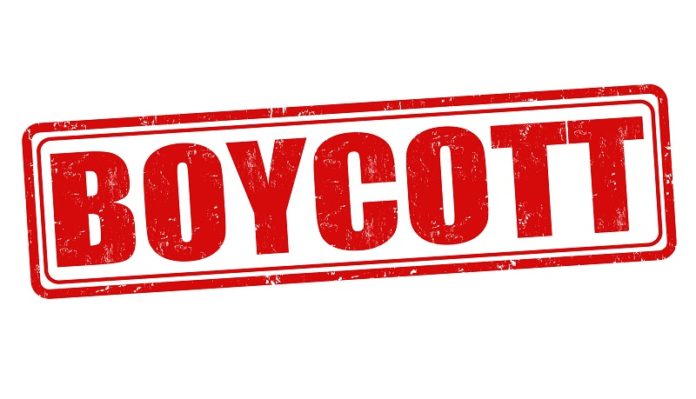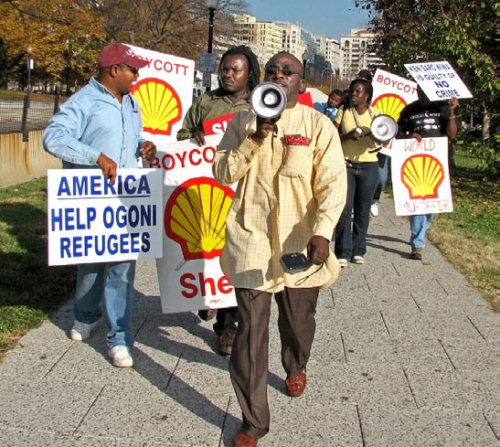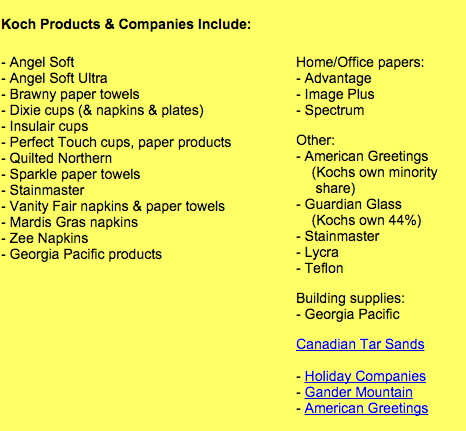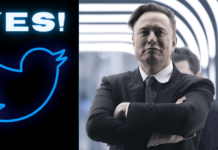
S.E. Smith of the Daily Dot has compiled an in-depth list of companies we should all boycott. While companies such as Coca-Cola, Nestle, and Walmart have all been in the spotlight recently for their water bottling operations in California—and in Walmart’s case, numerous other offenses as well—the informative list below provides additional industries worthy of scrutiny.
In an era when companies are constantly being called out for offenses like sexual harassment, environmental exploitation, and worker abuse via hashtag campaigns, it’s difficult to pick the worst offenders. Once narrowed down, they represent depressing lists of nearly unavoidable companies.
1: Goldman Sachs
Most people are aware of Goldman Sachs’ reputation as it’s one of the country’s most hated companies, and this is for good reason; according to Smith, the banking giant deserves a special hole in financial hell.
Due to its position in the Euro market, it may become a key player in the battle over the Grexit and Greece’s mounting debts.
“The first thing you need to know about Goldman Sachs is that it’s everywhere,” Matt Taibbi wrote for the Rolling Stone in 2010. “The world’s most powerful investment bank is a great vampire squid wrapped around the face of humanity, relentlessly jamming its blood funnel into anything that smells like money.”
Goldman Sachs has been sued multiple times for sexual harassment, and pay inequity. The banking giant has fired people who didn’t meet appearance standards, spoke to the press, and put “inappropriate photos” on their social media accounts. The firm has also exploited port truck drivers, and other vulnerable workers.
“It makes me ill how callously people talk about ripping their clients off,” wrote Greg Smith, a former high-ranking Goldman Sachs employee. “Over the last 12 months I have seen five different managing directors refer to their own clients as ‘muppets,’ sometimes over internal e-mail.”
2: Shell
There are numerous oil and gas industries worthy of recognition on the list of companies that should be boycotted. However Smith has narrowed his focus down to Shell. This company has not only been responsible for large oil spills, including the highly destructive incident in the Niger Delta, but it has been charged by critics of the firm’s African operations for being complicit in serious environmental crimes, union-busting, abuse of foreign workers, and even rape, torture, and murder.
The company’s corruption isn’t confined to those facilities overseas. A former Shell employee who worked on an oil rig in the Gulf of Mexico recently accused the company of firing her in retaliation for reporting sexual harassment.
The company is also under fire for its practices in the Arctic. In response to the Seattle residents who recently took to Twitter and staged a protest at its port, Shell’s chief executive had the nerve to issue some “snarky remarks,” such as:
“Fossil fuels out, renewables in’—too often, that’s what it boils down to. Yet in my view, that’s simply naïve.”
3: Gap, Inc.
Gap was met with plenty of criticism after the Rana Plaza factory collapsed in Bangladesh, even still, it was one of the numerous companies to reject a proposal for better oversight over working conditions at their factories overseas. The company has a history of past involvement with child labor and other worker abuses, but it insists that the use of child labor is a contractor problem. The problem continues unabated, making it apparent that Gap is not being serious about addressing its issues.
In 2014 the company announced it would be setting up shop in Myanmar after sanctions had been lifted in the region, and according to reports, Gap executives were calling it a “historic moment”… however, for all the wrong reasons. This is what they said:
“Myanmar has a miserable track record when it comes to workers, who are frequently underpaid and horribly mistreated,” stated Kim Bhasin of the Huffington Post.
In the states, Gap has raised minimum wage for its employees, but this has apparently come at a cost. Workers don’t receive benefits along with the higher wages, and they are known for “on-call scheduling,” meaning workers are only “notified the night before or a few hours in advance [about] whether they need to come in.”
4: Alpha Natural Resources
The Alpha Natural Resources Company runs out of the Appalachians where they are known to strip mines, pollute the environment, and maintain unsafe conditions for workers. The company supplies coal to power plants across the United States. In fact, if your electricity comes from coal-fired sources, it most likely comes from Alpha.
In 2014, Alpha was forced to pay $27.5 million in fines from the Environmental Protection Agency for spewing pollutants into waterways in Kentucky, Pennsylvania, Virginia, Tennessee, and West Virginia. They are also required to spend an additional $200 million a year on environmental cleanup in the region, showing the company’s “Running Right” motto is inaccurate, to say the least.
In 2011, Alpha absorbed Massey Energy which paid out $20 million in 2008 to the EPA due to Clean Water Act violations.
“In negotiations with the federal government over liability for the Upper Big Branch mining disaster that occurred under Massey’s watch, the firm cut itself quite a deal.”
In a report from the Associated Press:
“Alpha reached a historic settlement with federal prosecutors over the Upper Big Branch disaster. It agreed to pay nearly $210 million to clear itself of criminal liability for Massey’s actions, bankroll cutting-edge safety research and technology, and wipe the slate clean with the Mine Safety and health Administration.”
5: Koch Industries
Koch Industries is the second largest privately held firm in the U.S., and it owns numerous enormous holdings in a range of industries. The company sells a wide variety of products, from printing paper to gasoline and agricultural produce. However those at BoycottKochBrothers.com have also provided a helpful list that breaks this information down for you:
The company is known for its “business” practices… sinking millions into legislation and political campaigns that favor their conservative interests… and according to Smith, they lean towards the libertarian end of the spectrum. They oppose environmental regulations, as well as health care reform, and the family is backed by candidates such as Scott Walker who is notorious for slashing public benefits in the state of Wisconsin.
“Under the nearly five-decade reign of CEO Charles Koch, the company has paid out record civil and criminal environmental penalties. The volume of Koch Industries’ toxic output is staggering.”
The company has also been accused of exploiting public lands, and opposing unions.
6: WellPoint
Many health insurance companies are known for raising premiums and avoiding payouts, and WellPoint has been reported as being one of the worst. In a letter the Centers for Medicare and Medicaid Services (CMS) sent to WellPoint:
The carrier has “demonstrated a longstanding and persistent failure to comply with CMS’ requirements for proper administration of its Medicare Advantage Prescription Drug Plans (MA-PD) and Prescription Drug Plans (PDP).”
As a result of WellPoint’s noncompliance, beneficiaries are being denied access to “critical medications” that include cardiac drugs, anti-seizure drugs, anti-clogging drugs, and medicine for asthma and chronic obstructive pulmonary disease. In a recent suit from an amputee demanding that the firm pay for the replacement of a damaged prosthetic leg:
He asserts that Anthem Blue Cross “has a well-documented custom and practice of denying more costly artificial limbs to amputees in order to save money.” The insurer “has been subject to legal action in the past for denying these precise benefits to numerous amputees in California,” according to the complaint, which identifies six of these amputees by name.
7: Amazon
It’s no secret that Amazon has caused a stir among many independent businesses, especially bookstores. Thanks to low overhead, and the ability to negotiate excellent discounts on bulk, the company has been undercutting their rivals in the market. However, its abusive treatment of workers is what really takes the cake.
Journalist Mac McClelland of Mother Jones was successful in obtaining employment at the company where he reported back on the miserable conditions workers are forced to endure here in the states. German workers have also protested against the company on multiple occasions over unfair wages, working conditions, and collective bargaining.
The company has had numerous disputes with publishers over price over the years, and the recent dispute with Hachette is a case study of this aggressive behavior. During their dispute, Amazon was accused of “delisting, hiding, and deranking Hachette titles. Many were furious, claiming that the dispute had significantly harmed sales.
8: Whole Foods
With its organic food selection, Whole Foods caters to a large crowd of health-conscious individuals, however its public image could use some work. Current co-CEO, John Mackey, has made some comments regarding subjects like climate change and Obamacare that have “alienated the firm’s core demographic.”
Mackey has been praised as a good employer in the past, but according to Smith, his “libertarian streak deeply confuses the liberals who patronize Whole Foods.” At one point he compared Obamacare to fascism, and he’s rallied against unions and collective bargaining.
In this report from the Guardian, Mackey was reported as saying:
“Climate change is perfectly natural and not necessarily bad. In general, most of humanity tends to flourish more when global temperatures are in a warming trend and I believe we will be able to successfully adapt to gradually rising temperatures. What I am opposed to is trying to stop virtually all economic progress because of the fear of climate change.”
While some say Whole Foods is a good employer, others disagree. In 2014, Michelle Chen of the Nation reported:
“Dozens of Whole Foods employees in San Francisco partnered with the radical union Industrial Workers of the World (IWW) to protest a labor system that they say degrades workers while catering to wealthy consumers, and contributes to the city’s economic polarization.”
The protests in San Francisco targeted worker hourly pay, which starts at $11.25 an hour, much less than the $30 an hour it takes to live in the Bay Area. Whole Foods does not take kindly to those who attempt to fight the company’s “culture of worker poverty.” According to a 2013 report from AlterNet, Whole Foods is becoming comparable to Walmart as it is “under investigation for 45 violations of federal labor law, including physically threatening immigrant workers in California who were trying to form a union.”
9: Conagra Foods
The Conagra Foods Company covers a long list of brands, including Bertolli, David’s, and Chef Boyardee, to name a few, and their practices are described as “shocking.” In an exposé at Mother Jones, Eric Schlosser of Fast Food Nation reports on the “horrific conditions on Conagra’s U.S.-based kill floors.”
“In some American slaughterhouses,” he wrote, “more than three-quarters of the workers are not native English speakers; many can’t read any language, and many are [undocumented] immigrants. The golden rule in meatpacking plants is ‘The Chain Will Not Stop.’”
If workers are severely injured, the line keeps going, and getting unionized in a slaughterhouse is next to impossible due to the company’s anti-union practices. There’s also a problem organizing workers who face a high turnover rate.
Conagra has paid numerous pollution fines due to its farming and processing practices. This includes nitrate pollution, which sickens both freshwater rivers and lakes, as well as oceans. An overabundance of nitrates in the water can lead to algal blooms, and algal blooms can potentially cause permanent environmental imbalances. “Furthermore, they can also penetrate groundwater and pose a public health risk.”
Smith’s list includes those company’s worthy of boycotting. However, as he points out, you can most likely find good reasons to boycott any company. Pressuring companies might be a good start. However it’s most likely less effective than leaning on the government to reform them “from the bottom up.” Issues such as food safety, pollution, and worker safety need to be addressed in order for society as a whole to move forward.
Sources:
Dickinson, Tim. Rolling Stone. Sep 24, 2014. (http://www.rollingstone.com/politics/news/inside-the-koch-brothers-toxic-empire-20140924)
Smith, Greg. The New York Times. Mar 14, 2012. (http://www.nytimes.com/2012/03/14/opinion/why-i-am-leaving-goldman-sachs.html?_r=1)
Smith, S.E. The Daily Dot. May 19, 2015. (http://www.dailydot.com/opinion/nestle-whole-foods-horrible-companies-boycott/?fb=dd)
Smith, Vicki. Associated Press. Dec 9, 2011. (http://www.timesnews.net/article/9039299/ex-massey-ceo-resurfaces-forms-ky-coal-company)
Taibbi, Matt. Rolling Stone. Apr 5, 2010. (http://www.rollingstone.com/politics/news/the-great-american-bubble-machine-20100405)
This Article (9 Companies We Need to Boycott) is free and open source. You have permission to republish this article under a Creative Commons license with attribution to the author and AnonHQ.com.








what about Nestle?
Nestle CEO declares water “food that should be privatized, and not a human right”
I used to work for Coca Cola many moons ago (about 14 years ago)
Nestle is a product owned by coke and distributed by them.
Bought Nestle water at WalMart..got sick in stomach and diarrhea. My mom was very ill and very weak!
How come Walmart is not on this list. they are a bad company too
What about AT&T and helping build the NSA for Americas government too. They should definitely be boycotted more tan ever.
I want us to focus more at the local level and work our way up. Rather than approaching from the top down. We need evrryone at the bottom to agree that something needs to be done and boycot up the ladder…not down.
Anyone who works at the Gap and isn’t told on the date of Hire that they are an “on call associate and is put on call this way has a viable labor dispute against the Gap.If they call you and you refuse to come in and they fire you for not coming in, you have a viable wrongful termination law suit. They are required to give I believe a minimum of a weeks notice( could be more). Most judges in wrongful termination suits are aware that the companies taking them back could just harass the former employee or find another reason to fire them. Therefore they usually award the plaintiff lost wages, legal costs and order the company to pay them unemployment until they find another job.(meaning they won’t try to sabotage the former employee’s chances to find another job because they will be paying them money until they do). This happened to a friend of mine and that’s what the judge did and said his decision is common practice.(don’t know how accurate that is but I heard the judge in the case say that so that’s where my facts are coming from that judge could actually be in the minority though)
What about the toxic Monsanto
And all central banks owned by the Rothschild’s
How about boycotting Samsung and Apple and buying Sony instead.
Hey anon. How can you tell us to boycott Amazon while on your front page is an alledgef news story which is literally a clip from the series Mr Robot…an Amazon prime exclusive series no less???
WTF?